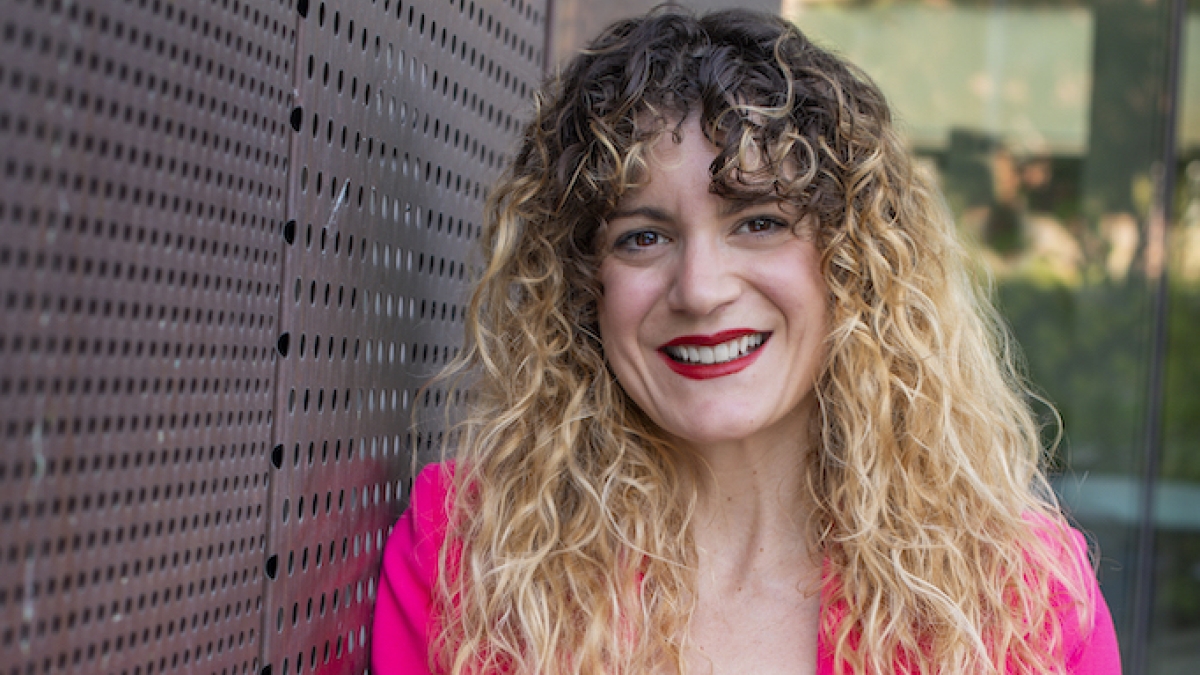Schmidt Science Polymaths Fellowship awarded to ASU Professor Sara Walker

Professor Sara Walker has been named one of the 2022–23 Schmidt Science Polymaths by Schmidt Futures. Image courtesy ASU/Samantha Neal
Sara Walker, a professor at Arizona State University's School of Earth and Space Exploration, has been named one of the 2022–23 Schmidt Science Polymaths by Schmidt Futures.
She is one of nine awardees selected this year for the highly competitive fellowship, which provides exceptional scientists with up to $500,000 per year for five years to fund creative new research directions.
Walker is an astrobiologist and physicist recognized for her pioneering work in developing theory to quantify life's origins. By identifying potential universal laws of life, her research aims to solve the enduring mystery of how life emerges from non-life and recognize alien lifeforms.
The Polymath Program is designed to push the boundaries of scientific and disciplinary limits by promoting the exploration of fresh methodologies and approaches in STEM to unlock breakthroughs and expedite progress in scientific discoveries. In receiving this award, the cohort receives support as they boldly transition from their established fields and enter into new disciplines or methodologies, bringing with them their expertise to conduct pioneering research. Through this model, the Polymaths’ work plays a vital role in advancing knowledge, fostering innovation and exploring emerging technologies to test unconventional theories.
The Polymath Program will award $500,000 a year, paid through their institution, for up to five years to help support their research. The nine new polymaths will join the existing network of 12 existing polymaths, for a total of 21 polymaths across 21 universities and six countries.
"This award is a wonderful recognition of Professor Walker's exceptional creativity and promise. It will give her the momentum to advance her research program in directions that would otherwise be difficult to explore without this support," said Meenakshi Wadhwa, director of the School of Earth and Space Exploration at ASU.
As a Schmidt Science Polymath, Walker will pivot her theoretical research by taking theory to practice, including applications like setting data standards for origins of life chemistry, algorithmic agency detection and designing sustainable planetary futures.
"I am thrilled to have been selected for this award," Walker said. "The flexibility and encouragement of risk-taking provided by the Schmidt Science Polymath program will empower my team to take even more creative risks and pursue bold new research directions across disciplines."
The Schmidt Science Polymaths, a program of Schmidt Futures, aims to support visionary scientists, like Walker, during the pivotal moment when they achieve tenure but may need more resources to explore new research frontiers. As one of this year's awardees, she joins a group of polymathic researchers tackling scientific challenges through interdisciplinary approaches.
Walker holds a PhD in physics and astronomy from Dartmouth College. At Arizona State University, she is deputy director of the Beyond Center for Fundamental Concepts in Science. Walker is a professor with joint appointments in the School of Earth and Space Exploration and the School of Complex Adaptive Systems. She is also a member of the external faculty at the Santa Fe Institute and a fellow at the Berggruen Institute. Her previous honors include the Stanley L Miller Early-Career Research Award, writing awards from the Foundational Questions Institute, and significant grants and awards from the John Templeton Foundation, NASA and the NIH to pursue topics as diverse as astrobiology and drug design.
"We are pleased to bring together a group of determined researchers, each pursuing new research directions to tackle pressing global challenges," said Stuart Feldman, chief scientist of Schmidt Futures. "From improving brain imaging and addressing gender bias in medical research to developing sustainable construction materials and advancing regenerative agriculture, these Polymaths' interdisciplinary work is poised to drive transformative advancements in diverse fields.
"They will join forces with the current 12 Polymaths, creating a dynamic community of scholars driven by intellectual curiosity and the shared goal of addressing some of the world's most pressing problems with fresh perspectives and bold ideas."
More Science and technology

ASU-led space telescope is ready to fly
The Star Planet Activity Research CubeSat, or SPARCS, a small space telescope that will monitor the flares and sunspot activity…

ASU at the heart of the state's revitalized microelectronics industry
A stronger local economy, more reliable technology, and a future where our computers and devices do the impossible: that’s the…

Breakthrough copper alloy achieves unprecedented high-temperature performance
A team of researchers from Arizona State University, the U.S. Army Research Laboratory, Lehigh University and Louisiana State…

